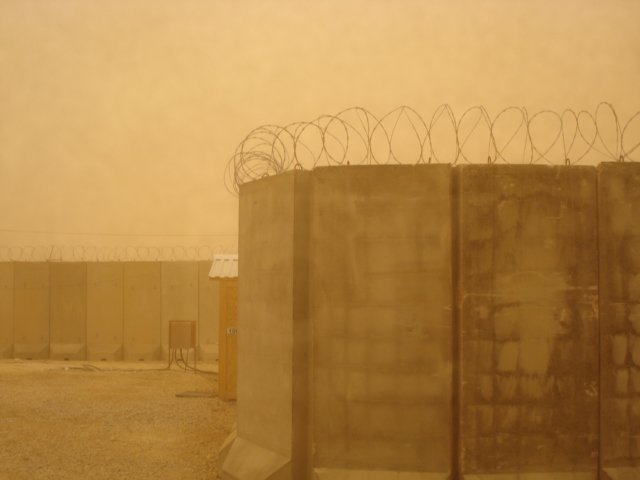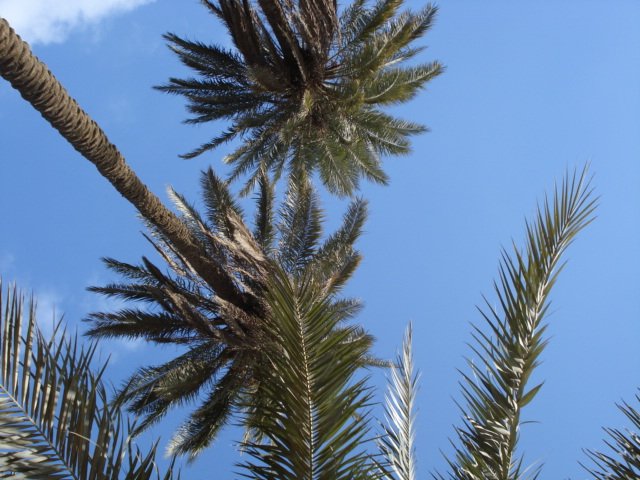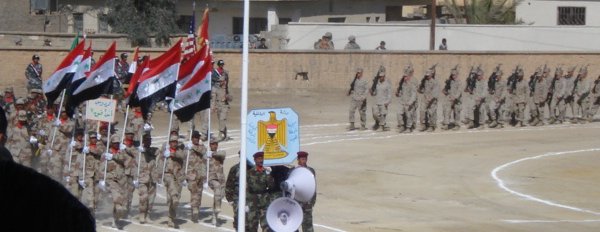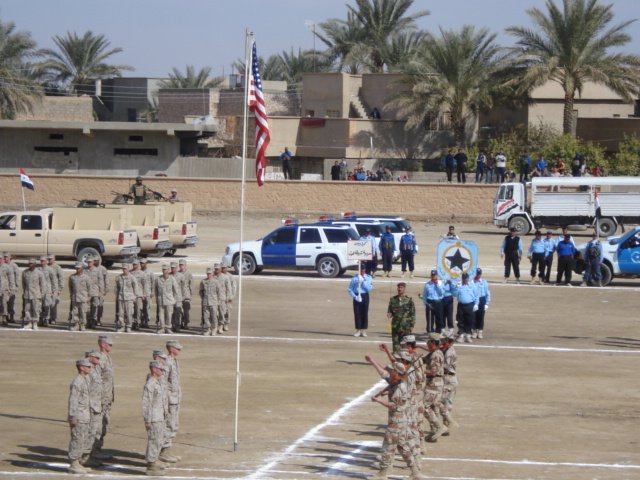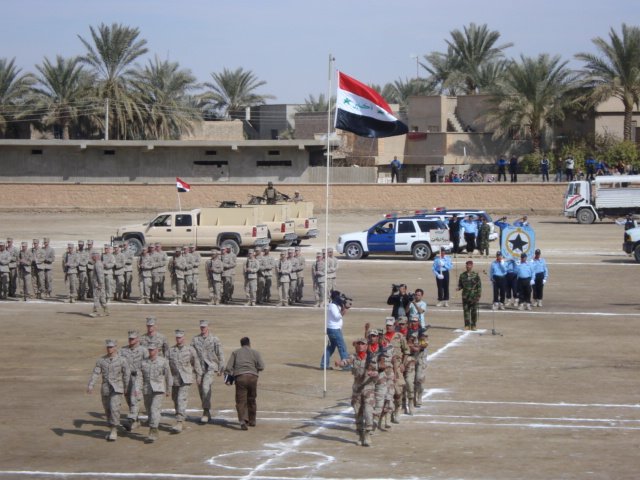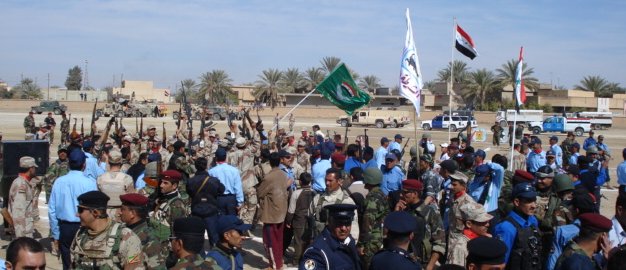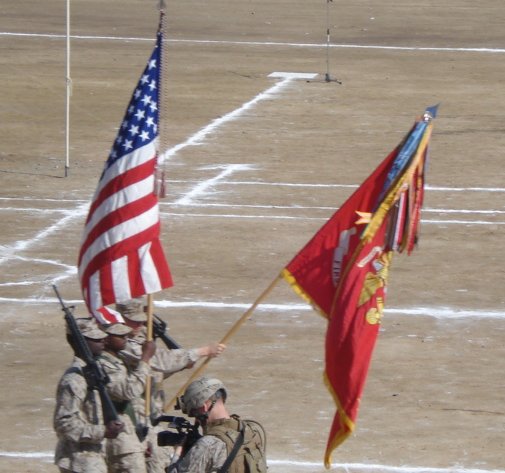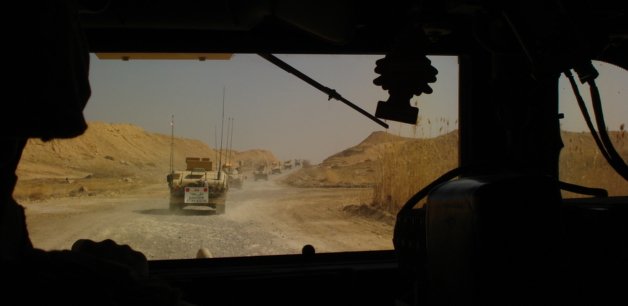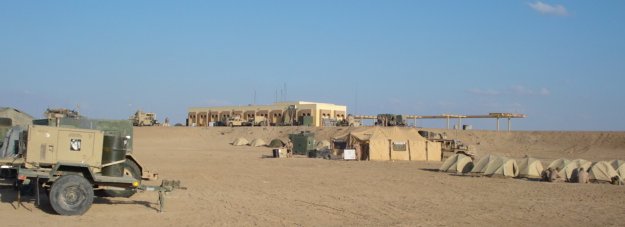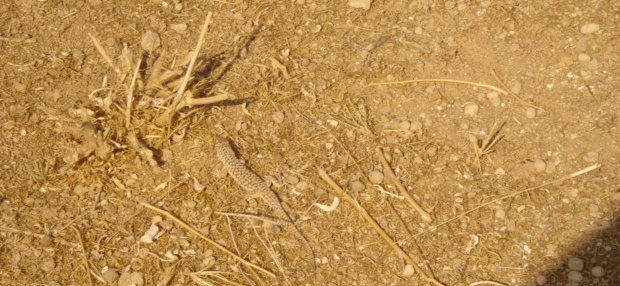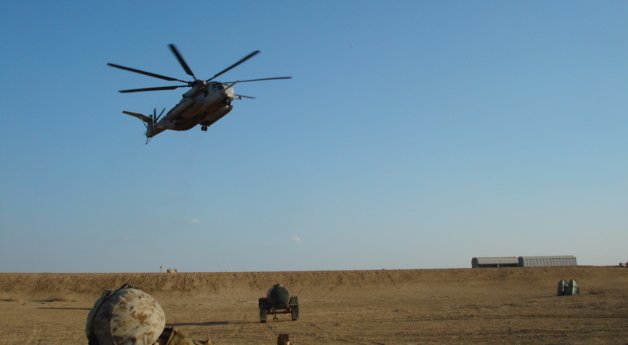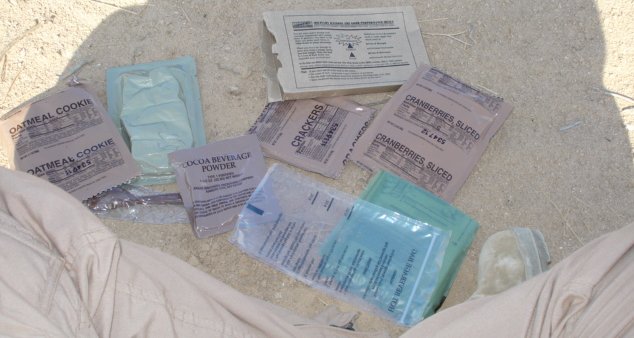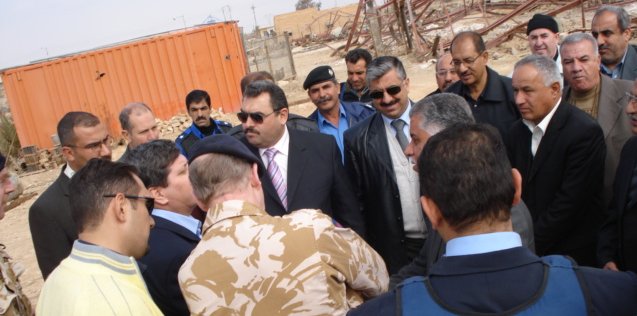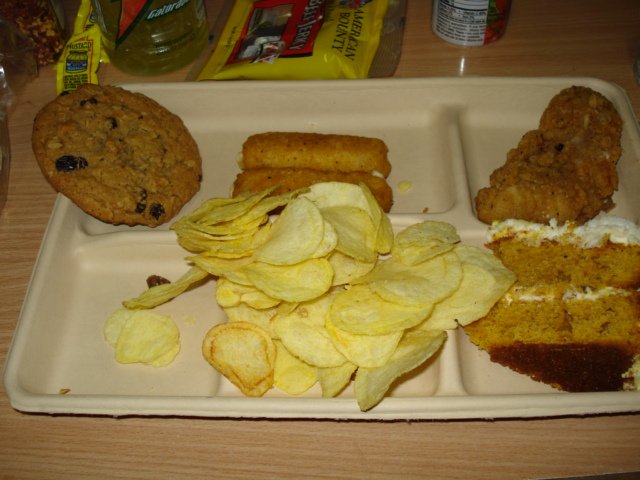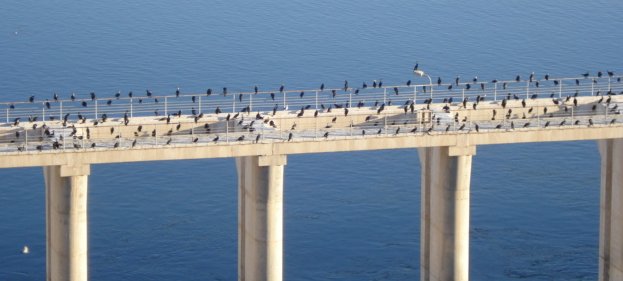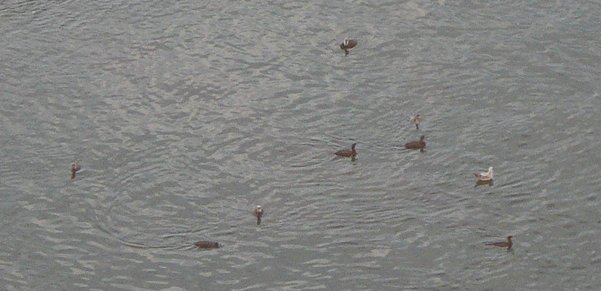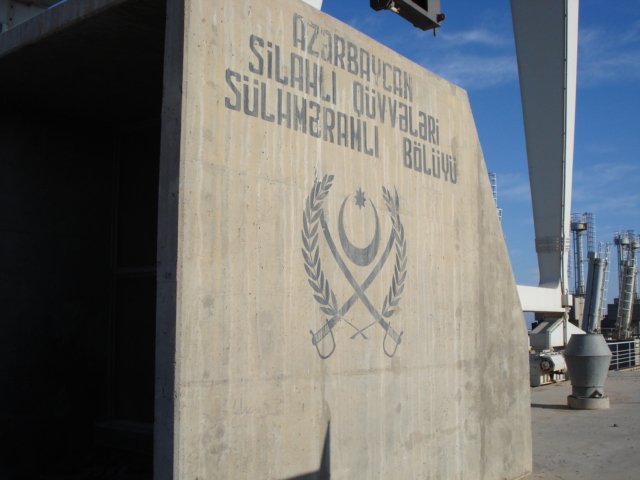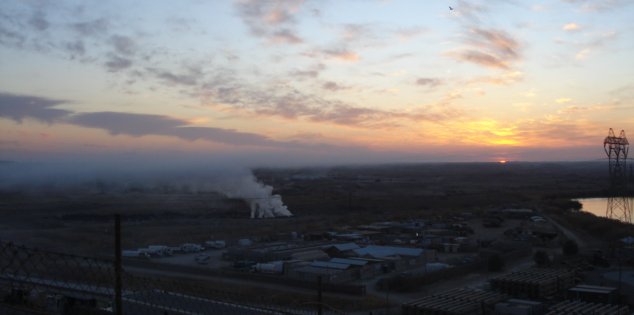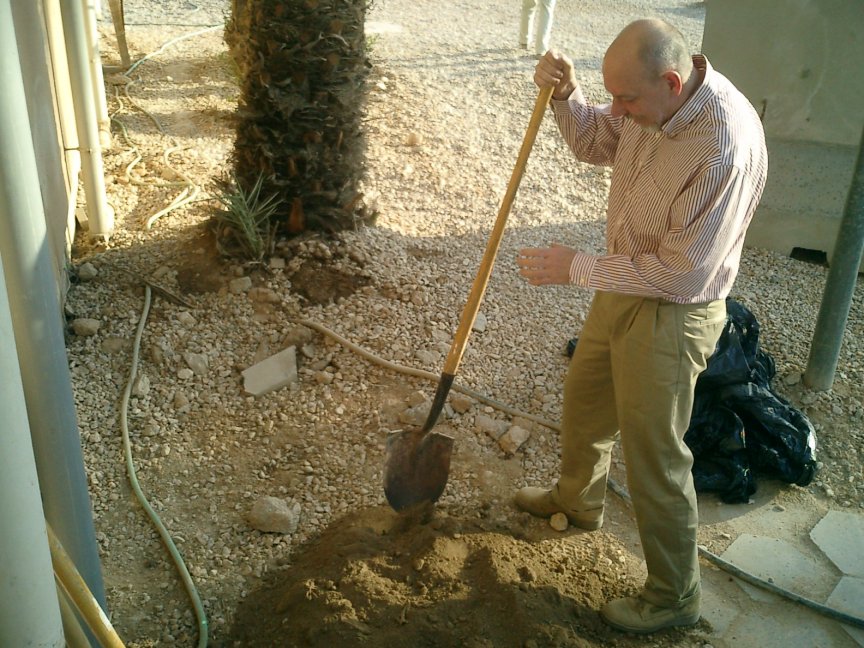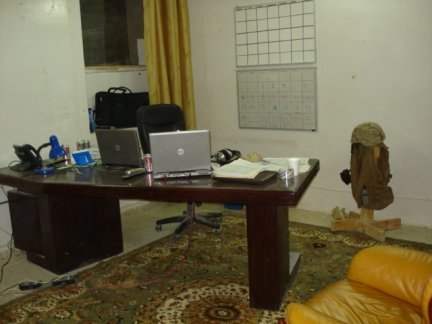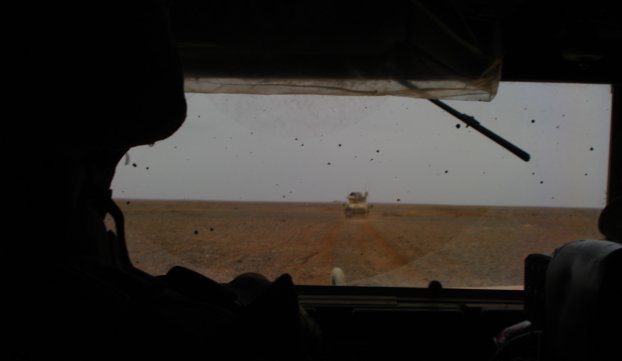
No real road connects the border forts along the berm that separates Iraq from Syria and Jordan. There is a sort of track, which in its better sections resembles a bad dirt road, but sometimes you cannot tell where the “road” starts and the flat desert floor ends. Fortunately, the desert is naturally hard and more or less paved with gravel. The bad news is that it is full of axle-busting ruts and tire piecing rocks.
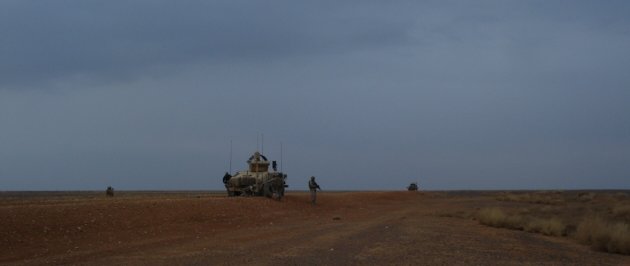
As we rolled down the perdition highway between the border crossings at Trabil & Waleed, one of our Humvees got a flat tire. I was impressed at how fast the Marines deployed into defensive positions and got to the job of fixing the tire and moving along. Colonel Malay pitched in and helped with some of the heavy work. I took advantage of the unscheduled stop to make a head call. I took a canine-like pride in marking this section of featureless desert.
We stopped at a border fort commanded by an enlisted man. He took justifiable pride in how well his men cared for their weapons and generally maintained operations, but he was in a tight spot. He had not been receiving sufficient supplies of fuel, so he could not patrol as much as he might have wished. His diesel generator was turned off to save power, so there was no electricity. They were taking advantage of the weak sunlight and you could still see within the fort, but as shadows of evening spread over the place, it was getting harder.
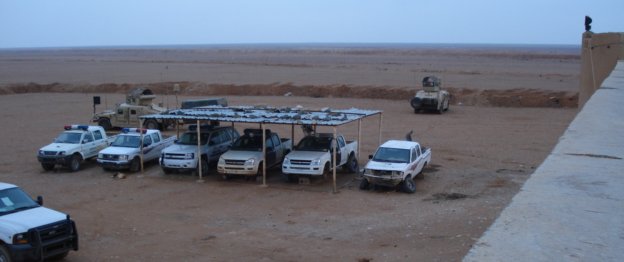
His vehicles are in terrible shape. I remember as a kid watching the Baja Challenge, where off the road driver raced across the that rugged desert in a vehicle survival contest. The winner was not the fastest, but the one that made it to the finish line. This is what our Iraqi allies face every day and you can see from their vehicles that they are not always making it to the finish. The best thing anybody could do to make life better for these guys guarding the border would be to pave a road along the berm. This is their lifeline. (The Syrians have a asphalt track on their side of the berm.) It would probably pay for itself on saved vehicles and fuel within a short time.
Below is the berm taken from the window of the Humvee. It is certainly not Hadrian’s Wall or even Offa’s Dike, but it does deter anybody who wants to drive over the border and inspections can reveal breaches where people have crossed.
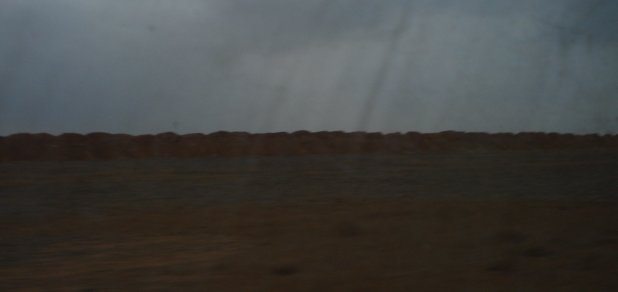
Morale at the fort we visited was surprisingly high. I just don’t think I would take such conditions so kindly, especially because many of the troops are evidently from Baghdad where it doesn’t get so cold. The sharp breeze blowing across the desert reminded anybody who needed the hint that we were not in Baghdad anymore. They seem to have decent food. We saw a goat carcass (at least the lower half) being readied for supper and rice was boiling in a big pot. I suppose good chow is helpful.
One of the Marines was telling me that when they go out on a joint operation with the Iraqis, our guys report that they have whatever day’s worth of MREs, water etc. The Iraqis report that they have enough of that flat bread they eat and Pepsi-Cola, the drink of choice among the Iraqi forces – after tea, of course. I suppose you can always count on finding a goat if you really need one.
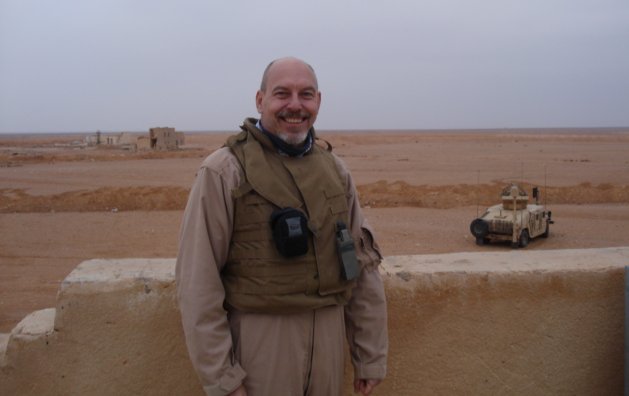
The picture is me on the roof of the fort. Off to the distance on my left is Syria; off to the right is Jordan. You have to wonder why anybody would even bother to set up a border on a place like this, but I suppose you have to have some demarcation.



